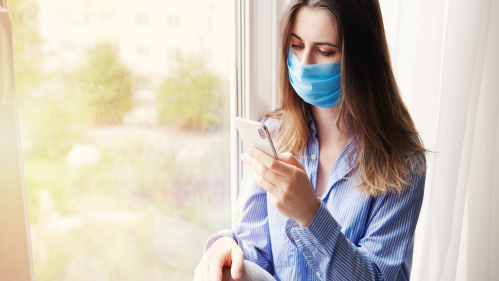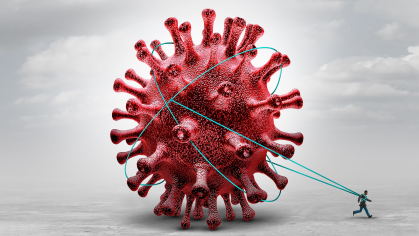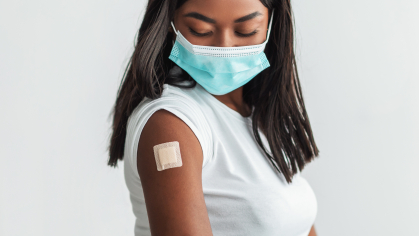Increased Physical Contact Does Not Infer Stronger Social Support, Data Indicates

New survey captures trends in social isolation during the pandemic
While Americans try to get back to normal after the COVID-19 pandemic shut down much of the country for more than a year, a new study found that unemployed, less educated and lower socioeconomic individuals do not have the support of family and friends that they need to fully recover.
“COVID-19 has disrupted our lives in many ways — it affected the health, education and financial stability of Americans,” said coauthor Katherine Ognyanova, an associate professor of communication at Rutgers’ School of Communication and Information and part of a coalition of researchers from Rutgers-New Brunswick, Northeastern, Harvard and Northwestern universities. “One less obvious but still vitally important consequence of the pandemic is the disruption of our social connections. The forced social isolation affected people's ability to maintain the supportive relationships which are so important for our well-being and professional success.”
In surveys from April 2020 to June 2020 by the COVID States Project, researchers asked respondents how many people they could count on to care for them (caring support), to lend them money (financial support), to talk to if they had a problem, felt sad or depressed (emotional support) and to help them if they needed to find a job (employment support). The researchers defined social isolation as having one or fewer relationships in a category.
The report found people with high income and education had more support to start and have been faster to recover. Conversely, researchers say unemployed and low socio-economic respondents have barely recovered from the increase in social isolation suffered earlier in the pandemic.
Ognyanova says the imbalance can exacerbate other social inequalities.
According to the researchers, the amount of social support available to American adults has undergone considerable changes throughout the COVID-19 pandemic. The data indicates that recovering from social isolation is difficult and does not simply stem from increased social contact.
Differences are apparent among gender and race in addition to income and education. The report shows men are substantially more isolated than women concerning emotional support but about equal in economic support. Men said they had more employment help and women indicated they have more reliable connections if they need to borrow money.
White respondents had emotional and caring support but less people to count on lending them money or help finding them a job than Asian Americans, African Americans and Hispanics.
However—between August and April 2021—Asian Americans, African Americans, and Hispanics saw their economic social support decrease more than whites. More recently in June, social isolation for economic support significantly increased for Hispanics and African Americans. African Americans became the racial/ethnic group with the highest levels of someone to count on to lend them money and to help them if they need to find a job.
The researchers polled 185,223 people across all 50 states plus the District of Columbia between April 2020 and June 2021.
The COVID States Project is a joint project of the School of Communication & Information at Rutgers University-New Brunswick, the Network Science Institute of Northeastern University, the Shorenstein Center on Media, Politics and Public Policy of Harvard University, Harvard Medical School, the department of political science and Institute for Policy Research at Northwestern University.
The consortium has released 55 reports and has charted public opinion related to COVID-19 topics since April. It is the largest ongoing national survey tracking people’s opinions and behavior during the pandemic.
The report can be viewed here.


